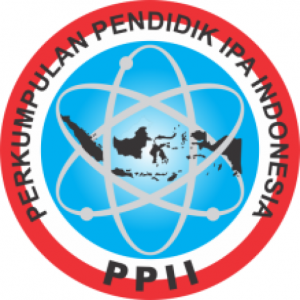Farmers' Resilience to The Impact of Climate Change in Teniga Village, Tanjung District, North Lombok
Authors
Hapidi Anandytia , Heri Sulistiyono , MarkumDOI:
10.29303/jbt.v25i4b.10573Published:
2025-11-12Issue:
Vol. 25 No. 4b (2025): Special IssueKeywords:
adaptation strategy, climate change, farmers resilienceArticles
Downloads
How to Cite
Downloads
Metrics
Abstract
Climate change has disrupted agricultural systems, especially in rural areas that depend on weather stability for food production. This study aims to analyze farmers’ resilience to climate change impacts in Teniga Village, Tanjung District, North Lombok Regency. A descriptive method combining qualitative and quantitative approaches was applied to 86 respondents selected purposively. Data were collected through questionnaires, observations, and documentation, then analyzed using descriptive statistics with Microsoft Excel and SPSS. The findings show that the overall resilience level of farmers is moderate, with an average score of 78,78, while the economic (18,08), social (20,72), and institutional (19,12) and disaster aspect (20,98) dimensions are categorized as low. Only the disaster resilience aspect showed moderate adaptation. These results indicate that although farmers have begun implementing adaptive actions such as crop diversification and water-saving practices, their capacity remains limited due to weak institutional support, restricted access to capital, and low community participation. Therefore, strengthening economic empowerment, institutional coordination, and community-based disaster management is essential to improve adaptive capacity and ensure the sustainability of local livelihoods amid changing climatic conditions.
References
Aldy Nurhidayat, Andreas Krisna Tera Difa, Faris Nasrullah, Febri Hairul Anwar, & Denny Oktavina Radianto. (2024). Pengaruh Perubahan Iklim Terhadap ProduktivitasPertanian Padi Di Daerah Tropis. Jurnal Sains Student Research, 2(2), 112–117.
Anggraini, N., Susilawati, S., Nuraini, D., Davia, D., Rachmawati, D. H., Srifatonah, N., Putri, A. D., & Nurjanah, S. H. (2024). Analysis of Factors Influencing Pregnant Women’s Participation HIV Screening in Indonesia. Jurnal Penelitian Pendidikan IPA, 10(11), 8790–8798. https://doi.org/10.29303/jppipa.v10i11.8813
Awalia, N. (2021). Manajemen Risiko Bencana Hidroklimatologi untuk Ketahanan Kota di Semarang. Jurnal Biosains Pascasarjana, 23(1), 6. https://doi.org/10.20473/jbp.v23i1.2021.6-15
Badri, A. (2025). Development of Liveworksheet-Based Interactive Student Worksheet As a Media for Student Learning. Indonesian Journal of Educational Innovation, 1(1), 25–30. https://journals.widhatulfaeha.id/index.php/jpkjl
Bâra, A., Văduva, A. G., & Oprea, S. V. (2024). Anomaly Detection in Weather Phenomena: News and Numerical Data-Driven Insights into the Climate Change in Romania’s Historical Regions. International Journal of Computational Intelligence Systems, 17(1), 1–26. https://doi.org/10.1007/s44196-024-00536-2
Bardosh, K. L., Ryan, S., Ebi, K., Welburn, S., & Singer, B. (2017). Addressing vulnerability, building resilience: Community-based adaptation to vector-borne diseases in the context of global change. Infectious Diseases of Poverty, 6(1), 1–21. https://doi.org/10.1186/s40249-017-0375-2
Carmen, E., Fazey, I., Ross, H., Bedinger, M., Smith, F. M., Prager, K., McClymont, K., & Morrison, D. (2022). Building community resilience in a context of climate change: The role of social capital. Ambio, 51(6), 1371–1387. https://doi.org/10.1007/s13280-021-01678-9
Dapilah, F., Nielsen, J. Ø., & Friis, C. (2020). The role of social networks in building adaptive capacity and resilience to climate change: a case study from northern Ghana. Climate and Development, 12(1), 42–56. https://doi.org/10.1080/17565529.2019.1596063
Gee, D. G., & Casey, B. J. (2015). The impact of developmental timing for stress and recovery. Neurobiology of Stress, 1, 184–194. https://doi.org/10.1016/j.ynstr.2015.02.001
Ghazwan Aqrabin Faqih, Djumardin, A. M. (2023). Jurnal Risalah Kenotariatan. Jurnal Risalah Kenotariatan, 4(1), 271–293.
Hadrawi, A., Tayibu, N. Q., Amri, U., & Yafendi, N. S. (2025). Penerapan Teknologi Digital dalam Pemanfaatan Energi Surya untuk Pengembangan Ekowisata di Desa Tanakaraeng. Jurnal Pengabdian Kepada Masyarakat, 4(1), 42–47.
Handini, N., Mely Darwina, Yudistira, & Wahjoe Pangestoeti. (2025). Peran Pemerintah Daerah Dalam Mengoptimalkan Potensi Ekonomi Lokal Melalui Inovasi Kebijakan Pembangunan Berkelanjutan. Jurnal Ilmiah Nusantara, 2(5), 964–986. https://ejurnal.kampusakademik.co.id/index.php/jinu/article/view/5793
Herdianti, S. N. (2016). View metadata, citation and similar papers at core.ac.uk. JURNAL DINAMIKA PENDIDIKAN DASAR VOLUME 8, NO 1, Maret 2016 : 50 - 58, 8, 274–282.
K. Putra Lalu Aria Nata Kusuma, Putra, E. A. M., Fahrurrozi Iman Jayadi Syahid, Kwangtama Tekayadi, S., & Alfurqan, I. (2024). Pembentukan Undang-Undang Perubahan Iklim: Langkah Responsif Menuju Keadilan Iklim. Jatiswara, 39(3), 311–330. https://doi.org/10.29303/jtsw.v39i3.739
Kuipers, K., & de Jong, E. B. P. (2023). Resilient Livelihood Styles: An enriched perspective on household livelihood resilience in the sensitive natural environments of Indonesia. Regional Environmental Change, 23(4), 1–14. https://doi.org/10.1007/s10113-023-02155-7
Muluneh, M. G. (2021). Impact of climate change on biodiversity and food security: a global perspective—a review article. Agriculture and Food Security, 10(1), 1–25. https://doi.org/10.1186/s40066-021-00318-5
Murtaza, G., Ullah, F., Zhao, Z., Liao, Z., Trujillo-Pahua, V., Ramirez-Romero, R., & Li, Z. (2025). Insect responses to heatwaves and their influence on Integrated Pest Management. Entomologia Generalis, 45(1), 69–89. https://doi.org/10.1127/entomologia/2025/2869
Narter, M. (2023). Crisis and resilience in psychology. Journal of Design for Resilience in Architecture and Planning, 4((Special Issue)), 109–116. https://doi.org/10.47818/drarch.2023.v4si113
Ngarawula, A. F. B., & Wahyudi, C. (2023). Actor Relationship Model in Empowering Local Farmers Community Base Sustainable Development to Increase Productivity(Study of Social Interaction Between Field Extension Officers and Farmers in Rubaru District, Sumenep Regency). International Journal of Research in Social Science and Humanities, 04(11), 27–49. https://doi.org/10.47505/ijrss.2023.v4.11.3
Putra Nugraha, I. G., Gede Parma, I. P., Putri Agustina, M. D., & Hutnaleontina, P. N. (2024). The role of government and community participation in realizing sustainable tourism development in Tihingan Village, Bali, Indonesia. Journal of Infrastructure, Policy and Development, 8(8). https://doi.org/10.24294/jipd.v8i8.4621
Rhouma, A., & Bouzid, S. (2025). Plant Diseases : Types , Causes and Impacts. Egyptian Journal of Agricultural Sciences, 76(3), 21–46. https://doi.org/10.21608/EJARC.2025.441655
UNICEF, K. &. (2024). Analisis Lanskap Iklim untuk Anak-anak di Indonesia Analisis Lanskap Iklim untuk Anak-anak di Indonesia. Kementerian Lingkungan Hidup Dan Kehutanan Republik Indonesia & UNICEF Indonesia, 60.
Woodhill, J., Kishore, A., Njuki, J., Jones, K., & Hasnain, S. (2022). Food systems and rural wellbeing: challenges and opportunities. Food Security, 14(5), 1099–1121. https://doi.org/10.1007/s12571-021-01217-0
Zulfikri, A., Ningsih, E. M. N., Harsono, I., & Susanto, H. (2024). Agricultural Adaptation Strategies to Weather Fluctuations for Improved Agribusiness Sustainability in West Java. West Science Nature and Technology, 2(01), 17–23. https://doi.org/10.58812/wsnt.v2i04.743
License
Copyright (c) 2025 Hapidi Anandytia, Heri Sulistiyono , Markum

This work is licensed under a Creative Commons Attribution 4.0 International License.

Jurnal Biologi Tropis is licensed under a Creative Commons Attribution 4.0 International License.
The copyright of the received article shall be assigned to the author as the owner of the paper. The intended copyright includes the right to publish the article in various forms (including reprints). The journal maintains the publishing rights to the published articles.
Authors are permitted to disseminate published articles by sharing the link/DOI of the article at the journal. Authors are allowed to use their articles for any legal purposes deemed necessary without written permission from the journal with an acknowledgment of initial publication to this journal.


























